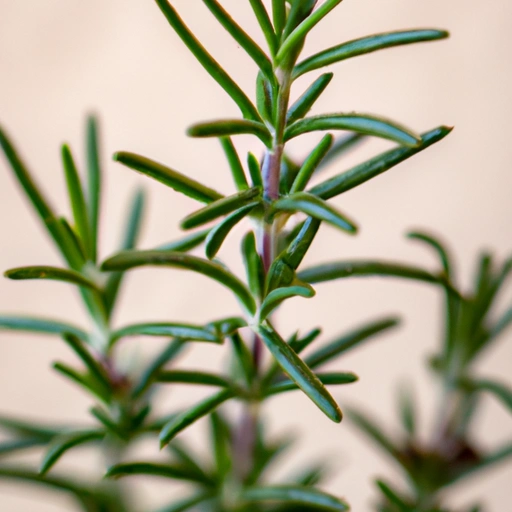Rosemary
Description

Rosemary is a fragrant evergreen herb native to the Mediterranean region. With its needle-like leaves and distinctive woody aroma, rosemary is not only a culinary delight but also an herb with a rich history and numerous health benefits. In cooking, rosemary is used in various forms, such as fresh, dried, or as an essential oil.
Common uses
Rosemary is frequently used to season meats, soups, stews, and sauces, as well as a variety of vegetable dishes. It is also a common ingredient in bread, such as focaccia, and is used to infuse oils and vinegars.
Nutritional value
Calories
A 1 teaspoon (1 gram) serving of dried rosemary contains approximately 3.31 kcal (13.8 kJ).
Protein
Dried rosemary contains about 0.04 grams of protein per 1 teaspoon (1 gram).
Fat
There is a negligible amount of fat in rosemary, with only about 0.15 grams per 1 teaspoon (1 gram) of dried herb.
Carbohydrates
Rosemary consists of approximately 0.68 grams of carbohydrates per 1 teaspoon (1 gram) of dried rosemary.
Vitamins
Rosemary is a good source of Vitamin C, Vitamin A (from beta-carotene), and several B-complex vitamins.
Minerals
The herb contains minerals such as iron, calcium, and potassium. 1 teaspoon (1 gram) of dried rosemary offers about 1% of the daily recommended intake of these minerals.
Health benefits
Rosemary is believed to have anti-inflammatory and antioxidant properties. It may also improve digestion, enhance memory and concentration, and provide neurological protection.
Potential risks
When consumed in typical food amounts, rosemary is generally safe for most people. However, in large doses, rosemary oil may be toxic and cause allergic reactions. Pregnant and breastfeeding women should avoid high quantities of rosemary.
Common recipes
Rosemary is used to enhance the flavor of a variety of dishes, including roasted meats like lamb, poultry, and beef. It also complements soups, stews, and marinades.
Cooking methods
This versatile herb can be used in various cooking methods, such as grilling, baking, sautéing, and roasting. It is often added during the cooking process to imbue dishes with its aroma.
Pairing with other ingredients
Rosemary pairs well with garlic, olive oil, lemon, and root vegetables. It is also a good match for a variety of cheeses and complements other herbs like thyme and sage.
Summary
As a revered herb with a storied past, rosemary adds a robust flavor to numerous dishes. Its health benefits further enhance its appeal as a culinary ingredient. While it is a safe and healthy addition to most diets, it should be consumed in moderation.